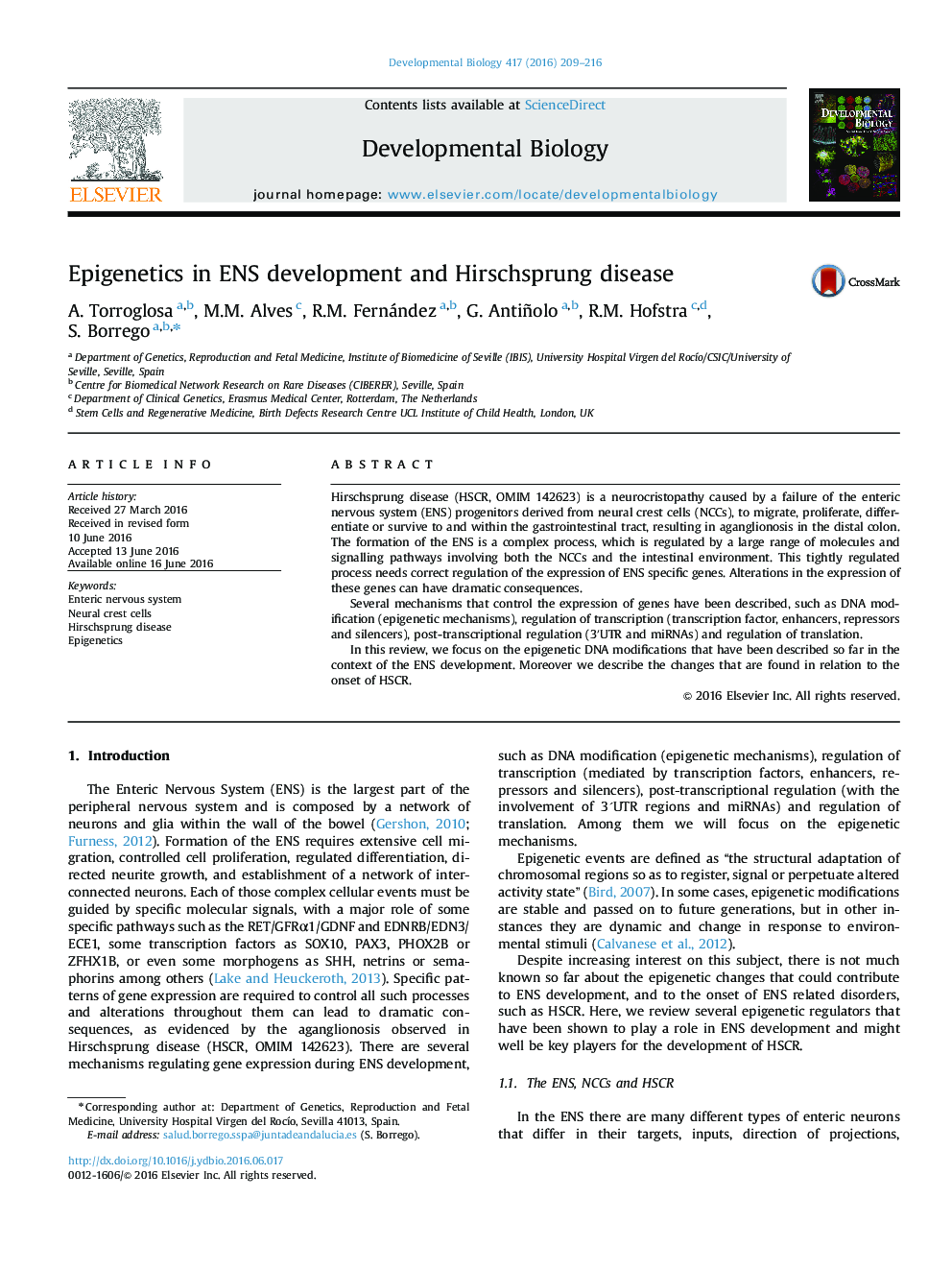| Article ID | Journal | Published Year | Pages | File Type |
|---|---|---|---|---|
| 5531787 | Developmental Biology | 2016 | 8 Pages |
â¢There are many epigenetic mechanisms implicated in NCCs and ENS development.â¢Aberrant epigenetic patterns may contribute to the development of neurocristopathies.â¢Further investigation is required to dissect the role of epigenetic changes in HSCR.
Hirschsprung disease (HSCR, OMIM 142623) is a neurocristopathy caused by a failure of the enteric nervous system (ENS) progenitors derived from neural crest cells (NCCs), to migrate, proliferate, differentiate or survive to and within the gastrointestinal tract, resulting in aganglionosis in the distal colon. The formation of the ENS is a complex process, which is regulated by a large range of molecules and signalling pathways involving both the NCCs and the intestinal environment. This tightly regulated process needs correct regulation of the expression of ENS specific genes. Alterations in the expression of these genes can have dramatic consequences.Several mechanisms that control the expression of genes have been described, such as DNA modification (epigenetic mechanisms), regulation of transcription (transcription factor, enhancers, repressors and silencers), post-transcriptional regulation (3â²UTR and miRNAs) and regulation of translation.In this review, we focus on the epigenetic DNA modifications that have been described so far in the context of the ENS development. Moreover we describe the changes that are found in relation to the onset of HSCR.
